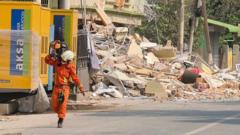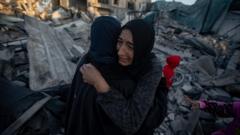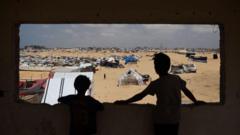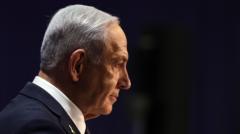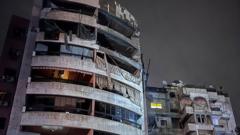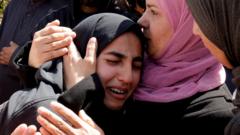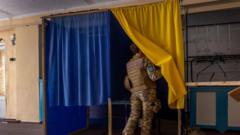Gadi Moses, an 80-year-old Israeli, endured significant hardships during his 15 months as a hostage in Gaza, including extreme malnutrition and isolation. His release has shed light on the conditions faced by many hostages, as families yours support and hope for the return of their loved ones.
Hostage Survival: An Israeli Uncle's Tale of Endurance
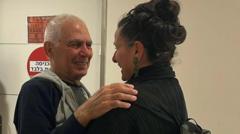
Hostage Survival: An Israeli Uncle's Tale of Endurance
Gadi Moses, recently freed after 15 months in Hamas captivity, shares his harrowing experience of survival in dire conditions.
After 15 months of captivity in Gaza, Gadi Moses, an 80-year-old Israeli man, has returned home to his family, though not without harrowing experiences. His niece, Efrat Machikawa, recounts the stark details of his ordeal, noting that Gadi survived on minimal sustenance—just a piece of bread and an olive twice a day. "I can't believe he endured such conditions," she expressed while observing his extreme weight loss.
The treatment he received during his time as a hostage included a small bowl of water for personal hygiene only every five days, and the need to request permission for basic needs such as using the toilet. Efrat emphasized that his loneliness was, itself, a form of torture, further compounded by the uncertainty of his fate.
To cope with his challenges, Gadi relied on mental exercises, calculating problems in his head and walking up to six miles a day within the confines of his captivity. "His longing to reunite with family kept him going, that was his primary source of strength," Efrat shared. Gadi was one of 18 hostages released amid a ceasefire between Israel and Hamas that has seen significant violence, leading to a staggering death toll on both sides.
Following the ceasefire, significant attention has turned towards the treatment of the released hostages, many of whom report similar adverse conditions to that of Gadi. Keith Siegel, a fellow hostage, returned home recently, and his niece voiced concerns about his physical state, noting his weight loss but also his resilient spirit in maintaining his vegan principles.
As joyous reunions take place for families like that of the Siegel family, the emotional landscape remains complex. While Efrat finally felt a wave of relief upon seeing her uncle in the hospital after his release—she described their embrace as "the strongest hug"—she also acknowledged the challenges ahead, both for Gadi's rehabilitation and for the remaining hostages.
The emotional toll and the long path ahead for their families highlights the significant psychological scars inflicted by such traumas. Personal accounts, like that of Doron Steinbrecher, another former captive, emphasize that the journey of healing will take time, urging continued support for families with loved ones still in captivity.
Meanwhile, the Bibas family celebrated the return of Yarden but mourned the absence of his wife and children, whose fates remain uncertain. As negotiations continue for the release of further hostages, both the joy and the sorrow of these reunions reflect the ongoing challenges faced in the region, with calls for enduring peace and security gaining further urgency.

